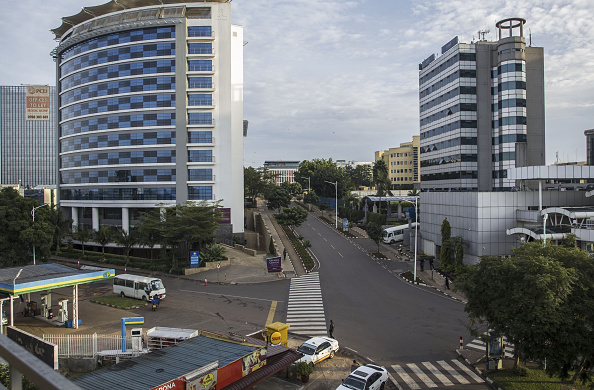
Rwandan universities eye safe reopening

On a sunny morning, one man is hanging a banner on the wall at the University of Tourism Technology and Business Studies of Rwanda (UTB), with a message sensitizing people on how to avoid contracting COVID-19.
“We are working in line with the proposed reopening,” said a worker who gave his name only as Janvier. At UTB, banners and screens are installed at different corners of the campus, demonstrating how to behave in the classrooms and other university premises amid the outbreak of coronavirus.
Few meters away from Janvier, another man is fitting seats in properly demarcated space in a lecture room.
Laborers were back at UTB, which was located in the Rwandan capital city Kigali, after seven-month long inactivity due to the COVID-19.
Daily new cases of coronavirus in Rwanda appeared to have gone down recently. The central African nation reported 4,892 cases in total as of Saturday, of which 73 percent have recovered.
The Rwandan Ministry of Education approved the UTB to be one of the 17 higher learning institutions that are allowed to reopen from Oct. 12. However, while some universities were allowed to reopen fully for all students, UTB is among those only allowed to reopen for final years students.
Secondary schools and primary schools in Rwanda will remain closed until November at the earliest.
“We are prepared for reopening from all angles and ready to effectively implement the safety protocols. From prevention measures of COVID-19, we have installed mass hand washing stations at two university entries. We have installed hand sanitizers with sensors from entry points, and across different offices and corners of the campus including in lecture rooms,” UTB Rector Callixte Kabera told Xinhua on Saturday.
The university has also put in place a COVID-19 command team composed of staff and students who will be conducting awareness to make sure everybody is aware of what needs to be done, he said.
The education ministry’ standard requirements for schools to reopen include having hygiene infrastructure for regular hand washing, forehead thermometers for measuring temperature of students, and enough space to ensure social distancing, whereby each student will be able to sit alone.
Schools are also required to put in place contingency plans regarding suspected coronavirus cases, with isolation rooms. It will also be mandatory for students and teachers to wear face masks.
Despite the readiness, Kabera worried if the students would fully comply with the measures to contain the spread of the COVID-19. For this reason, the university have assigned three people to each classroom to keep reminding students of the preventive measures.
Students at different levels in Rwanda turned to remote learning since March, include Mariam Umutesi, a computer science student at the Institute of Applied Sciences based in northern Rwanda.
“I’m ready to resume studies. I expect to work hard to catch up on school time lost during the closure. I don’t have any worries because we are mature enough, we will adapt to all the protocols,” she said.
Her school was allowed to reopen only for final-year students while continuing to offer e-learning to students in other levels.
Christophe Munyakazi, a parent, said he is hopeful of the safe reopening of schools for students to “avoid having a dead year.”
“As with all sectors currently, I think the proposed reopening of schools was based on health assessment by relevant authorities and parents and students will have to adapt as required,” he said.






